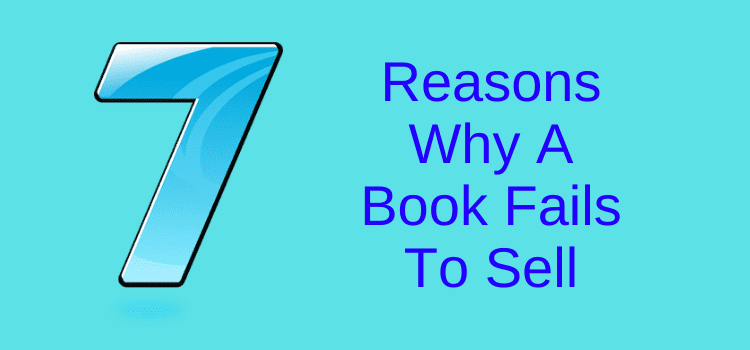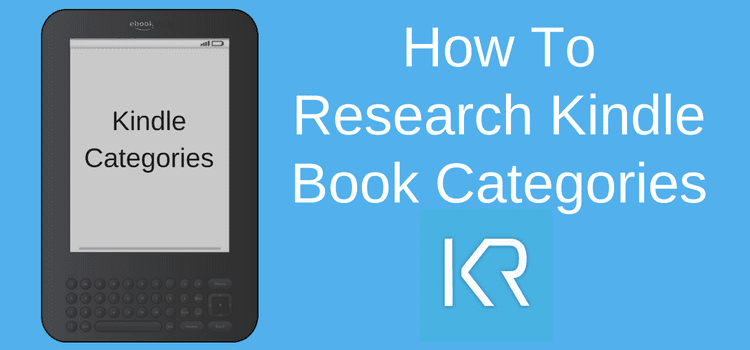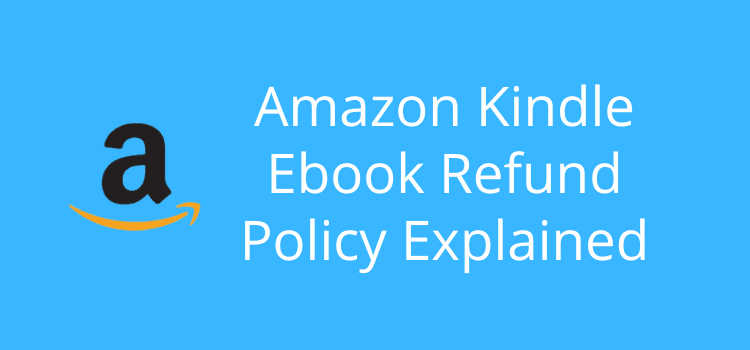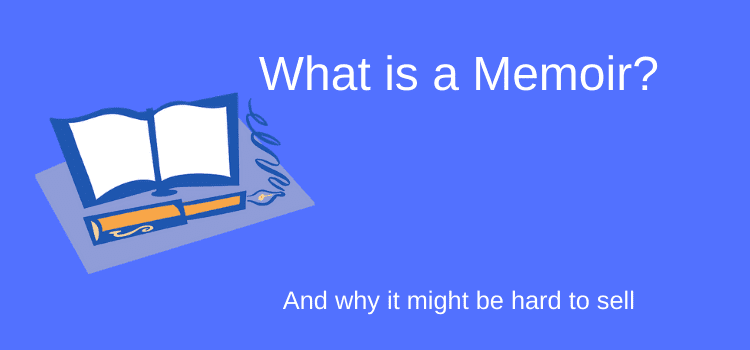
Many self-published authors fail to give their books the best chance of success because they are in such a rush to publish that they overlook so many basics. It is the main reason for low book sales.
Many authors new to self-publishing get many basic things backward, upside down, and back the front. The result is usually a disappointment.
Publishing a book or ebook and making it available for sale on Amazon is the last step in the process and not the first.
Giving a new book any chance at success and gaining book sales requires a lot of planning, preparation, and good old-fashioned hard work before bringing a book to market.
Publishing a book takes time
The lack of this process causes so many new authors to become disillusioned with self-publishing when they find book sales are very scarce.
It is worth knowing that publishing a book, by any method or means, is always a gamble.
Big publishers can only bank on getting a handful of the titles they publish each year to sell very well.
Then they hope one or two will take off and hit the bestsellers.
As for the many titles that fail and have low book sales, that is how the book publishing business works. It’s always a risk.
The same applies to self-published titles, and more than likely, at around the same percentage of success.
Many will fail, while only some will succeed.
To get a book toward the successful end of the equation, you need to take the time to produce a great book.
You have to plan how to market and promote, build an online presence, and define the book’s market appeal.
If you can avoid the following seven classic mistakes new authors often make, you will give your new book a far better chance of success.
1. Publishing a poor-quality ebook or book
Without a shadow of a doubt, a poorly written and structured book, inadequately proofread, unsatisfactorily formatted, and with errors and typos, will fail miserably.
No one enjoys reading books full of mistakes.
If you rush into publishing before your manuscript is up to an acceptable standard, it can only be a sales disaster.
Checking and editing your manuscript thoroughly before publishing is vital.
You can use grammar tools to help find many common errors.
Even if the manuscript is a good book, a sub-standard book cover is another reason for poor book sales.
Using homemade book covers might be cheap, but they look cheap too.
Readers and book buyers are rarely attracted to sub-standard book covers.
Another vital element is your book description.
A two-sentence summary is not a book description. Nor is an extended preview read of the first chapter.
An excellent book description works when it can quickly hook a book buyer’s interest.
Yet, so few new authors take the time to get this vital element right.
Producing and publishing a quality book is a long process, and there are no shortcuts.
Yes, self-publishing is quick, easy, and free, but creating an excellent book that readers will love is not.
2. Promoting a book to no one
Blasting out social media posts or blog posts about a new book is usually pointless without a plan.
But even more so if they are to almost nobody.
Publishing a book and thinking, “Oh yeah, I need a Twitter account and Facebook page,” is a common mistake.
New social media accounts have so few followers.
Then bombing your handful of new followers with a book can only lead to losing them quickly.
It is not a good idea because it is self-defeating and will not sell books.
Building a significant social media presence takes time.
It has to be done well, well, well before publishing. Promoting your book needs to begin a long time before you publish.
3. Self-publishing is free
Yes, hitting the publish button on Amazon, Smashwords, or Draft2Digital is free.
But that’s about where the free part stops.
Making a profit in business almost always comes after investing, and self-publishing is no different.
Investing in a professional book cover, editing, proofreading, book promotion, and advertising are all expenses that are necessary for successful self-publishing.
It doesn’t mean you need to invest thousands of dollars as traditional publishers do.
But it will be hard to succeed without a modest budget and investment.
4. My book is for everyone
Well, no. Books are categorized by genre for a very good reason.
Certain readers read certain books because they have very particular tastes in what they buy and read.
Taking the time to learn and understand the demographics and type of reader your book is aimed at becomes a huge benefit when it comes time to bring your book to market.
Trying to promote and advertise a romance novel to avid readers of spy novels or science fiction will be a big waste of money.
However, knowing what defines your small market niche will put your advertising and promotion expenditure to much better use.
New authors rarely spend enough time researching competitive book genre categories and search keywords before they publish.
Understanding how powerful Amazon search keywords are is a vital step in helping book buyers find your book.
5. It’s trending; it’s trending!
Vampires were in a few years ago before 50 Shades started a new soft erotica trend, and next week it will be something new.
Perhaps that is the key.
Don’t follow trends; start a new one.
Or better still, stick to what you know, and wait for that to be a trend again.
Anyway, it takes so long to write a great book that ten trends will have come and gone before you have finished.
6. It was hard work for me, so my price will be high
Pricing an Amazon Kindle ebook above the market never works.
Sure, it was tough to write your book, and you might think that $9.99 is a fair price in return for your hard work.
Unfortunately, the publishing industry and the book market do not work on how you feel or think.
Book pricing is extremely sensitive, and if a book is outside the buying range, it has little hope of selling.
Before deciding on the cover price, look at books that are in your genre.
Then price your book according to the market and not your ego.
It is far better to sell 100 ebooks at $0.99 than no ebooks at $7.99.
7. Quick, quick, quick! Publish it!
This is by far the most common reason a book by a self-publisher does not sell.
Rushing into self-publishing a book without a plan is a recipe for almost guaranteed failure.
It is putting the cart before the horse.
If you have no plan, no preparation, no base, no followers, no promotion, no launch, no build-up, and no budget, you usually get no sales.
Self-publishing is not a race.
It is the process of bringing a quality product to market for people to buy.
No amount of wishing and hoping will help, but planning and preparation certainly will.
Wrap-up
If you are planning to self-publish, give yourself and your book at least a chance of success.
Take your time and get the essential elements in place before you publish it.
Most self-publishing problems arise from rushing too quickly into publishing a book.
Make sure your book is of the highest quality. Pay for a great cover. Write an absolutely fantastic book description.
Know your niche market and build a social media presence based around it. Develop a book promotion plan and budget.
Do all this BEFORE you publish. Then you will have a much, much better chance of success with your book.
Related reading: 7 Point Checklist To Do Before You Self-Publish A Book
Share This Article



A fine post like this one reminds me to always be looking at expanding my reach before the writing of my book is completed.
Hello. Great article full of good tips. I’m just in the process of trying to gather some online prescence via Twitter, thinking about tackling FB soon. I’m a good couple of months from having a completed script but on a right budget. Is anyone able to advise on costs, e.g. for book design and any recommended marketing methods?
I’ve also seen a few things about giving the first few books away for free to build up following, but do people associate a $0 price with poor quality when it comes to books?
Thanks
Such a shame when authors aren’t promoting their books well. Like going to Twitter and Instagram hashtags for the book genres and commenting on readers’ posts. That’s how you start conversations and expose your profile to readers. Not by tweeting out into the ether with no followers.
Engage first and followers will follow as time goes.
Decent and bookmarked. However, non-genre novels pose a real marketing challenge. Let’s say you’re an unknown author publishing a book titled “Odd Thomas.” What do you tell readers? Horror? Mystery? Romance? Thriller? The reality is you tell them “Dean Koontz.” We all know off-beat novels that defy easy description. Or genre novels that really aren’t. Take science fiction. I’m thinking Michael O’Brien’s Voyage to Alpha Centauri, or the more familiar C.S. Lewis’ Out of the Silent Planet. Both involve traveling to another world, but I think science fiction readers would be scratching their heads.
I am about to publish my seventh novel and know I have a limited readership ( mainly over sixties) but the launch is always a joy, especially as I ignore bookshops and use places that feature in the book. I do use twitter but steer clear of facebook although I know it helps sales. My selling point is that the books are set locally. For the first time (!) I have done an advance information sheet. Like most self publishers I always used to wait until I had the copies in my hands before I started marketing.
There are very few of us left that rely on selling paperback copies and it needs the author to do a lot of self promotion. I use talks to groups and always have copies in the car.
Awesome to know Julie, thank you :)
What a great idea! Some of my stories are local as well, I’ll keep that in mind for my next launch, Thanks, Julie!
Hi Derek, great points. I published an eBook a few years back now and I did not promote it enough. I was exhausted after writing it while still blogging and having a full time job. I hope to do another some day soon and promote it much more than I did the first one.
I’ve read too that it gets easier when you do more than one eBook too :)
These are great reminders that when you self-publish, only you can make it a success. I know, I’m learning the hard way. Don’t follow my example. Happy New Year
This sounds like good common sense advice to me…and yes I have ruminated and all those things but little by little have or am getting the basics in place so this post served a very useful purpose ( for me) and gave me hope, encouragement that I am on the right track and while my book most likely won’t be top of the best sellers list it will be something I can be proud and the people who purchase it…Well if some love it like I do then to me that will be an achievement and if this granny can get a best seller ( I can dream) then that will be my wow moment…So thank you and I wish you a Happy and Healthy New Year :)
Success can come in many forms, Carol. I wish you the very best of luck with your book.